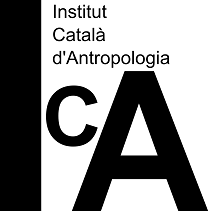The space of hospitality. Activism, art, architecture and urbanism in Rome
DOI:
https://doi.org/10.56247/qua.404Paraules clau:
utopía concreta, hospitalidad, Roma, migrantes, lucha por la viviendaResum
The article approaches the theme of the concrete utopias produced by hospitality from the point of view of architecture and the city, identifying political, artistic and academic experiences that are constructing that space already highlighted by linguists, philosophers and anthropologists: hospitality as a threshold capable of transforming the foreigner into a guest. In architectural space, that threshold is a theatrical machine capable of reversing roles, of constructing that limbo that suspends and makes property boundaries opaque, that allows ambiguities and ambivalence, that confuses opposing figures such as certain and uncertain, nomadic and sedentary, domestic and institutional. In urban space, the threshold is extended, becomes visible and public thanks to political and artistic experiences that have created places capable of giving guests the power to host in turn. In Rome, the housing struggle movements have produced intercultural condominiums as viable alternatives to the institutional welcome systems and to the housing emergency; artistic and academic researchers have identified urban strategies and policies producing imagery and projects for a hospitable city. Finally a project, Porto Fluviale RecHouse, drawn up jointly by the administration and the housing struggle movement, and currently being implemented - proposes a model of urban intervention based on hospitality.
Descàrregues
Global Statistics ℹ️
|
704
Views
|
391
Downloads
|
|
1095
Total
|
|
Referències
Apolonio, L. (2021). El nomadismo latente de la ciudad sedentaria. Entrevista a Francesco Careri. Arte, Individuo y Sociedad. https://doi.org/10.5209/aris.76225 DOI: https://doi.org/10.5209/aris.76225
Agier, M. (2018). L’étranger qui vient: repenser l’hospitalité. Seuil.
Bulley, D. (2015). Ethics, power and space: International hospitality beyond Derrida. Hospitality and Society, 5(2-3), 185-201. https://doi.org/10.1386/hosp.5.2-3.185_1 DOI: https://doi.org/10.1386/hosp.5.2-3.185_1
Benveniste, É. (1973). Le vocabulaire des institutions indoeuropéennes, vol. I. Economie, parenté, societé. Faber and Faber.
Cacciotti, Ch. (2020). When squatting becomes ‘stable precarity’. The case of Santa Croce/Spin Time Labs, Rome, Visual Etnography, 9(2). http://dx.doi.org/10.12835/ve2019.1-0143
Careri, F., Finucci, F., & Marinelli, D. (2022). Porto Fluviale RecHouse: Progetto di recupero edilizio e sociale degli ex-Magazzini Taburet a Roma. Revista Estado Da Arte, 3(1), 323-329. https://doi.org/10.14393/EdA-v3-n1-2022-63795 DOI: https://doi.org/10.14393/EdA-v3-n1-2022-63795
Candea, M., Da Col, G. (2012). The return to hospitality. Journal of the Royal Anthropological Institute (N.S.), S1-S19. https://doi.org/10.1111/j.1467-9655.2012.01757.x DOI: https://doi.org/10.1111/j.1467-9655.2012.01757.x
Comisso, F., Perlo, L. & Vecellio, M. (Eds.) (2021). Comp(h)ost. Immaginari interspecie. Nero.
Curi, U. (2015). L’ambivalenza costitutiva della figura dello straniero. Minaccia e dono che interpella ciascuno di noi. Casa della cultura, 1-19. https://www.casadellacultura.it/157/l-ambivalenza-costitutiva-dello-straniero
De Finis, G. & Di Noto, I. (2018). R/home. Diritto all’abitare dovere capitale. Bordeaux Edizioni.
Decolonizing Architecture (2016). http://www.decolonizing.ps/site/boden/
Derrida, J. & Dufourmantelle, A. (2014). De l’hospitalité. Calmann-Lévy.
Derrida, J. (2021). Hospitalitè, Vol. 1, Seminaires (1995-1996). Seuil.
Giacomini, B. (2019). Philoxenos. Per una filosofia dell’ospitalità. Il melangolo.
Haraway, D. (2019). Chthulucene, sopravvivere su un pianta infetto (pp. 151-194). Nero.
Hilal, S. (2021). Il diritto ad ospitare nello spazio pubblico. In Comisso, F., Perlo, L. & Vecellio, M. (Eds.). Comp(h)ost. Immaginari interspecie (pp.162-171). Nero.
Herzfeld, M. (1987). “As in your own house”: Hospitality, Ethnography, and the Stereotype of Mediterranean Society. In D. Gilmore, D. (Ed.). Honor and Shame and the Unity of the Mediterranean. Special Publication of the American Anthropological Association.
Laboratorio CIRCO (2021). CIRCO. Un immaginario di città ospitale. Bordeaux Edizioni.
Lambert, J.C. (1997). New Babylon - Constant. Art et Utopie. Cercle d'art.
Lefebvre, H. (1961). Utopie expérimentale: pour un nouvel urbanisme. In Revue française de sociologie, 2-3, 191-198. 10.2307/3319524. DOI: https://doi.org/10.2307/3319524
NoWorking (2020). https://www.noworking.net/noworking/
Mauss, M. (1971). Sociología y antropología. Tecnos.
PEROU (2018). Des actes. À Calais et tout autour. Post-éditions.
Pisano, M. (2011). Creare relazioni da abitare. Voci, narrazioni in uno scheletro urbano riabitato. PhD Dissertation, Università degli Studi di Roma “La Sapienza”.
Pitt-Rivers, J. (1977). ‘The law of hospitality.’ HAU: Journal of Ethnographic Theory, 2(1), 501-517. https://doi.org/10.14318/hau2.1.022 DOI: https://doi.org/10.14318/hau2.1.022
Rivière, P. (2000). Indians and cowboys: two field experiences. In P. Dresch et al. (Eds.). Anthropologists in a Wider World. Essays on Field Research. Berghahn Books. DOI: https://doi.org/10.2307/j.ctv287sdrb.7
Romito, L. (2021). Rigenerare Roma e l’Europa attraverso la pratica dell’Ospitalità. In Comisso, F., Perlo, L. & Vecellio, M. (Eds.). Comp(h)ost. Immaginari interspecie (pp. 123-131). Nero.
Rozakou, K. (2012). The biopolitics of hospitality in Greece. American Ethnologist, 39(3), 562-577. DOI: https://doi.org/10.1111/j.1548-1425.2012.01381.x
Scuola di Herat (2021). https://heratscuola.wixsite.com/my-site/la-scuola-di-herat
Sansi, R. (2014). The pleasure of expense: Mauss and The Gift in contemporary art. Journal of Classical Sociology, 14(1), 91-99. DOI: https://doi.org/10.1177/1468795X13494721
Stavrides, S. (2011). Towards the city of thresholds. Professionaldreamers.
Shryock, A. (2012). Breaking hospitality apart. Bad hosts, bad guests, and the problem of sovereignty. Journal of the Royal Anthropological Institute, S20-S33 DOI: https://doi.org/10.1111/j.1467-9655.2012.01758.x
Vaneigem, R. (2008). Tratado del saber vivir para uso de las jóvenes generaciones. Anagrama.
Zanini, P. (1997). Significati del confine. Milano.
Descàrregues
Publicades
Com citar
Número
Secció
Llicència
(CC BY-NC-SA 4.0)




